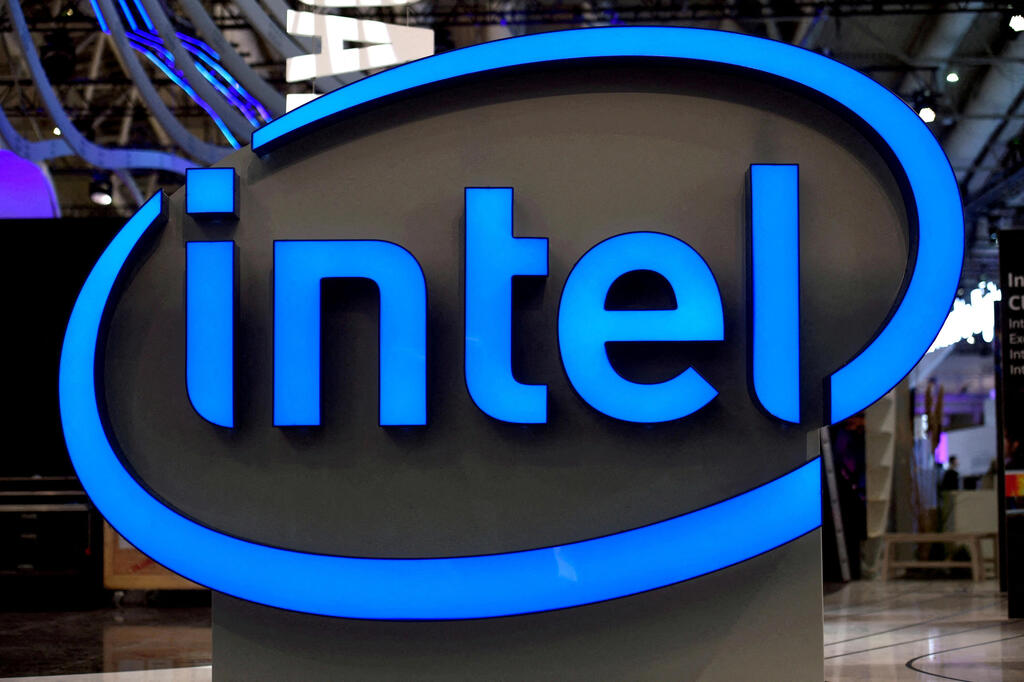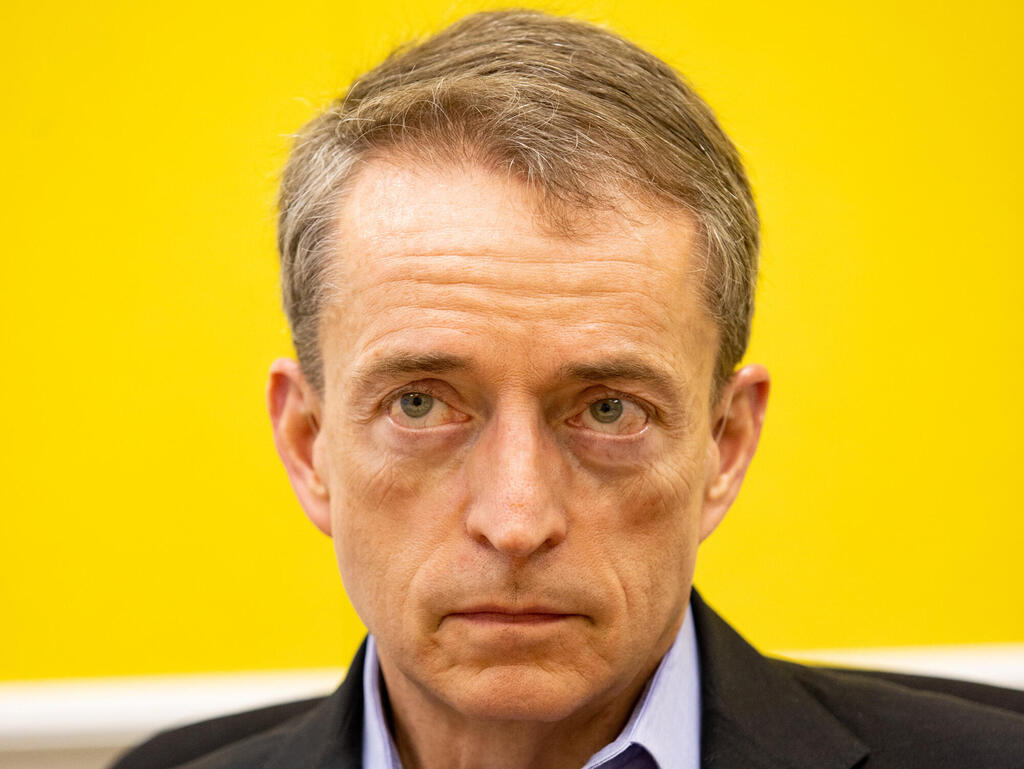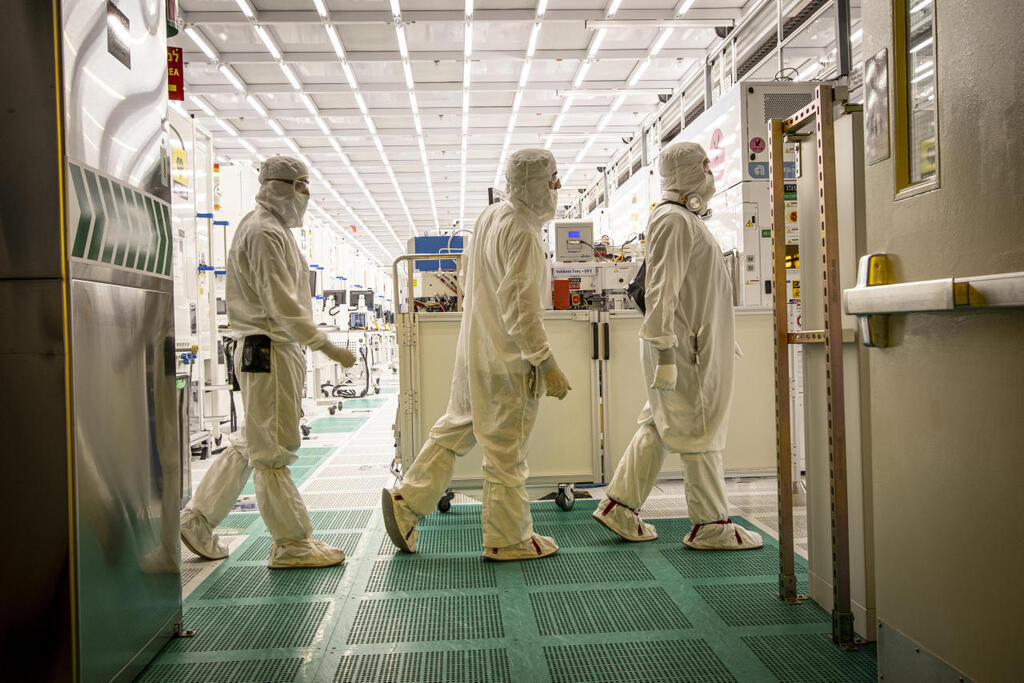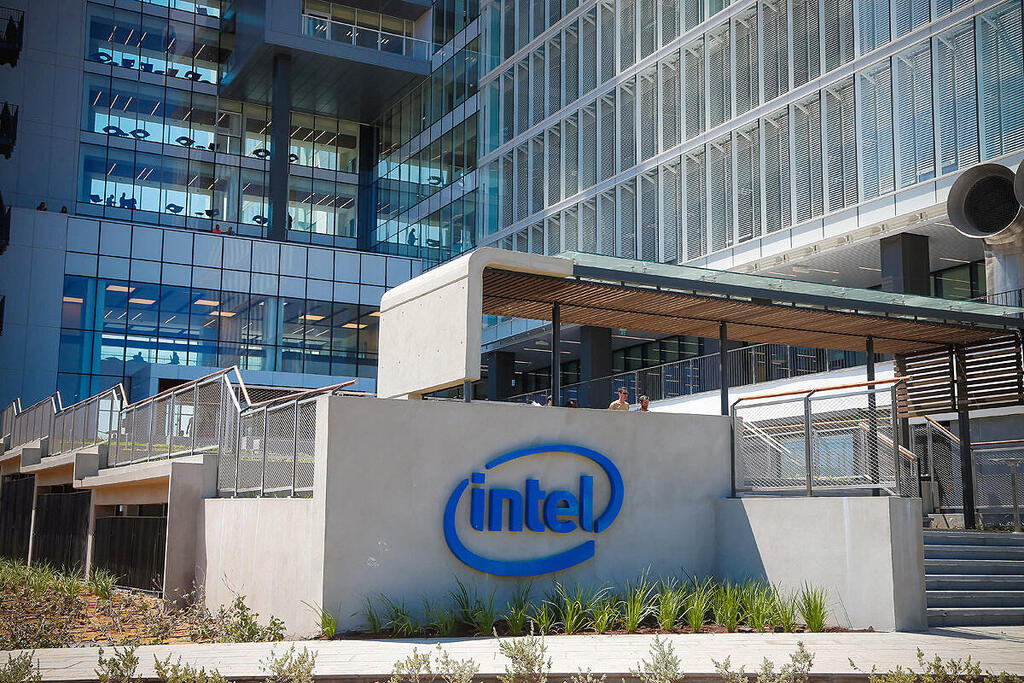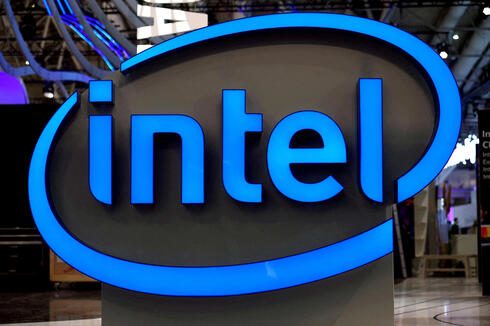
"Intel is a sick company. It has to separate manufacturing from development"
Dov Moran, the legendary entrepreneur and inventor of the USB memory stick, believes Intel is running out of options. With job cuts looming and critical projects delayed, the question remains: How will Israel’s economy withstand the ripple effects of Intel’s global transformation?
Exactly fifty years have passed since Intel laid the first cornerstone of its operations in Israel. It was shortly after the Yom Kippur War, and the young country was still recovering from the trauma. Despite the circumstances, Dov Frohman managed to convince the founders of what was then a rising chip giant that Israel had the manpower Intel needed, which was lacking in the U.S.
From that moment until 2000, Frohman led Intel's Israeli operations. The Israeli development center cracked the transistor compression formula and built the 8088 processor, which went into IBM's personal computers. The factory in Jerusalem, Intel's first outside the U.S., manufactured a record 75% of the company’s 386 processors, which were highly popular at the time. Intel Israel experienced its "Nvidia moment" when the launch of the "Pentium" processor made Intel Inside a mandatory feature in every computer.
The more Israel became important to Intel, which then dominated the processor market, the more the Israeli economy was impacted by the giant that was gradually expanding. If Intel had completed its $5.4 billion purchase of Tower Semiconductor, its Israel operation would have become Intel's second largest worldwide, after the U.S. Today, Intel Israel reflects the company's full spectrum of divisions and departments.
Unlike many international companies that only have development centers or limited activities in Israel, Intel Israel operates like a small Intel USA, with a workforce that accounts for about 10% of all Intel employees globally. This is a source of great pride and power for Israeli high-tech, but it also poses a significant risk today in light of Intel's deep crisis. The company is expected to make a series of dramatic moves to ensure its survival. These moves may only be the first steps in a deep recovery plan, with Israel potentially facing yet another front in the challenging reality of recent years.
When people casually say "Intel is the largest private employer in Israel" or "Intel is integral to the Israeli economy," they don't always grasp the full meaning. The issue goes deeper than the imminent layoffs of 1,000 of Intel’s 11,700 employees in Israel. It raises questions about the future of Israeli high-tech and the economy at large after Intel implements its recovery measures. There’s also concern about what might happen if Intel cannot recover and is broken up into parts. The potential breakup of Intel, with its divisions sold off, would bring into question the commitment of any new owners to maintaining operations in Israel.
Without speculating on exactly what Intel might announce this week—perhaps as soon as Monday—it’s important to understand what Intel’s crisis means for the Israeli economy. This goes beyond direct employment and delves into whether anything can be done to minimize the damage to an economy already in a volatile state.
In 2022, Intel's operations in Israel were responsible for almost 2% of the country’s GDP. The company’s exports from Israel reached nearly $9 billion, accounting for about 6% of all high-tech exports. Intel also indirectly employed an estimated 42,000 people in secondary and tertiary circles and purchased $3.5 billion worth of services and goods from local businesses. The layoffs of thousands of employees will have a profound impact. It's unlikely that Intel will settle for only 15,000 global job cuts from its inflated workforce of 110,000. Nvidia and AMD, which have no production activity and only development centers, employ only around 30,000 people each.
If more than 1,000 high-tech workers enter the job market under current conditions, it could lead to a reduction in the average salary in the industry. This would also negatively affect tax revenue since these are highly paid employees. Such a decrease in employment, coupled with reduced exports, could weaken the shekel, which has already depreciated due to the rising risks in the economy.
The depth of the impact was evident in June when Intel froze the construction of its new factory in Kiryat Gat. Many local subcontractors felt the consequences immediately. Publicly traded companies like Lesico had to report that the delay in contracts worth over NIS 100 million would have a material impact on their performance. "Wherever there’s a chip factory, an industry develops around it that produces equipment for those factories," explains a senior official in the local chip industry. "Companies like Applied Materials and KLA came here because of Intel, and they rely on physical proximity for their operations." Intel’s presence also boosts local subcontractors, some of whom are entirely dependent on the company.
Intel's biggest mistakes include:
- Failing to recognize profound shifts in the technology market, especially in mobile
- Being the only company today that combines manufacturing and development, whereas its competitors specialize in one or the other
- Engaging in a long series of acquisitions worth around $50 billion that yielded little benefit. Some acquisitions, like Mobileye, were spun off, and others, like Altera, are slated for separation
- Excessive bloat in the workforce. Intel’s employee count is disproportionately high compared to its competitors
- Engineering failures in recent years that hurt its ability to compete with manufacturers from East Asia, leading to its failure in the AI chip market and allowing Nvidia to establish a clear lead
Intel is also one of the most diverse employers, with many PhD holders in fields like physics and chemistry. The company employs a broad spectrum of workers, from programmers to technicians. In the southern part of Israel, Intel’s Kiryat Gat facility provides employment to many circles, from transportation and security to local subcontractors who depend on Intel.
The critical point is manufacturing. Although "only" 3,900 of Intel's employees are involved in manufacturing at Kiryat Gat, this operation is responsible for two-thirds of Intel’s exports from Israel. "In the past, Israel was often spared from cuts, but this time will be different," warns a source in the local chip industry. Many fear the cuts will hit manufacturing, Intel’s "soft underbelly." If programmers are laid off, they can find jobs elsewhere. But Intel employs many workers with unique expertise who may have limited options outside of Tower or specific sectors like the military, which is "fortunately" recruiting now, according to a high-tech executive.
Mobileye and potentially companies like Cisco, which in the past might have absorbed displaced workers, are now preoccupied with their own challenges and are not expected to quickly hire those let go. However, for Intel's development employees, Nvidia’s recruitment departments are open. Nvidia has already attracted numerous Intel employees in recent years and is aggressively expanding in Israel, where Nvidia Israel accounts for over a tenth of the company's global workforce. Opportunities also exist at Tower Semiconductor, as well as in the growing chip divisions at Apple, Google, and Amazon Israel.
To avoid drastic measures, Intel initially chose the path of voluntary retirement as a prelude to layoffs, which led to the departure of stronger employees confident in their ability to find new jobs. The retirement package was quite generous, with veteran employees receiving hundreds of thousands of shekels in addition to their severance pay. For example, a veteran employee with over 20 years of service could receive over 15 months of salary and potentially up to 20 months’ worth of severance.
The current estimate is that most layoffs will affect development departments, with Intel attempting to minimize the impact on manufacturing. The 7,000 development employees work across various divisions, including communication networks, data centers, processors for personal computers, and artificial intelligence. These employees are integral to Intel’s global operations, and the extent of the cuts will likely be determined by the U.S.-based leadership, rather than local management. Local leadership is split between Daniel Benatar, Co-General Manager of Intel Worldwide Semiconductor Manufacturing, and Co-General Manager of Intel Israel, and Karin Eibschitz-Segal, General Manager of Intel Validation Engineering and co-General Manager of Intel Israel.
A significant concern for Intel Israel is the diminished influence of Israeli managers within Intel’s global structure. Pat Gelsinger, Intel’s CEO, is known for being a centralized and divisive manager. However, today’s Israeli executives are perceived as less influential compared to previous generations of Israeli leaders at Intel, such as Dadi Perlmutter, who nearly became Intel’s CEO, Mooly Eden, who served as a senior vice president, and Maxine Fassberg, a prominent figure both within Intel and in the Israeli community.
Industry veterans warn that “if you don’t build a new fab (chip factory), the existing facility risks becoming a white elephant.” Although Intel’s factory in Israel is currently operating at high capacity, it has been in service for nearly 20 years. As production technologies become outdated, the facility is assigned less critical and more niche projects. This situation reflects one of Intel’s key challenges, which contributed to its current crisis: it only manufactures chips for its own use and does not produce for external customers.
This is the primary shift that Gelsinger has sought to lead since becoming CEO three years ago. The acquisition of Tower Semiconductor was supposed to be the first significant step toward this goal, but China’s regulatory block of the deal delayed the plan. Intel remains a unique player in the semiconductor industry, being the only company that combines development and production under one roof with minimal external customers.
The knowledge from Intel’s aging Kiryat Gat factory should ideally transfer to the next-generation facility that is planned to be built nearby. However, Intel has focused its efforts on building new plants in the U.S., where it receives substantial subsidies, and has even sent several Israeli experts to support these U.S. projects. This presents a major issue for Intel in Israel—not just the depth of cuts among production workers in Kiryat Gat, but also the suspension of the new factory’s construction. When Intel is discussing halting construction even in Germany, despite receiving generous subsidies, the threat looms over Kiryat Gat as well. While Israel has committed to covering 10% of the cost of the $10 billion plant, this pales in comparison to the much more aggressive incentive programs in the U.S. and the European Union, both of which aim to prevent the transfer of all chip production to the East.
In terms of governmental support, Israel has limited leverage at this stage, as Intel’s existing factory has already fulfilled all its obligations for receiving grants. Within the local chip industry, there is speculation that in extreme scenarios, Tower Semiconductor might acquire Intel’s Kiryat Gat factory, which would be a strategic expansion for Tower and a potential lifeline for Intel employees.
Despite the risks and pessimism, Israel has two key reasons for optimism. Intel is considered a strategic player, too important to fail. In the escalating trade war with China, the U.S. government needs Intel’s production to remain on U.S. soil. Just yesterday, it was announced that Intel is set to receive a $3.5 billion grant to produce chips in the U.S. for the Department of Defense. Israel also stands to benefit, as its production facilities are located in a U.S.-friendly country. The second reason for optimism is Gelsinger’s personal commitment to Israel. As long as he remains CEO, he appears dedicated to the country. A devout Christian, Gelsinger often shares Torah verses on his Twitter account and sees himself as having a mission to restore Intel to its former glory. In an interview with Calcalist in 2022, Gelsinger likened his return to Intel to Steve Jobs’ return to Apple, believing he can bring Intel back to the forefront of technology, even if he doesn’t create the next “iPhone.”
Last week, Intel executives presented analysts with a bold plan: to leapfrog 4nm technology and jump directly to 2nm, known as Intel 18A. These advanced chips could attract today’s most desirable clients, from Nvidia to Apple and Amazon. If successful—and although it was leaked that Broadcom was initially unsatisfied with the chips—this could be great news for Israel. The new Kiryat Gat factory, once built, could produce these next-generation chips, which are also planned for production at a new facility in Arizona, set to open next year.
“Intel is a sick company,” says Dov Moran, a world-renowned chip expert who previously sold M-Systems, the company he founded, to SanDisk for $1.5 billion, and who also served as a director at Tower. “But Intel has an amazing history, excellent engineering, and still a strong position in the PC market. It can overcome its current difficulties and emerge stronger, but to do so, it must separate manufacturing from development.”
Ronen Nir, a board member at the Aaron Institute for Economic Policy at Reichman University and a Managing Director at venture capital fund PSG, shares this view. “The layoffs are a short-term pain, but if Intel starts manufacturing for others, it could benefit Israel in the long term. The cuts in development are unfortunate, as Intel was the first international company to operate here. But we’ve built an ecosystem of new companies, and while Intel’s recovery plan may cause a temporary high-tech crisis, it won’t collapse the economy like Nokia’s fall did to Finland.”
At its peak, Nokia accounted for 4% of Finland’s GDP and a quarter of its growth between 1998 and 2007. After Nokia’s collapse, Finland entered its longest recession. According to Nir, “This is a wake-up call for the government. High-tech is dynamic. Yesterday we were strong in chips, today we’re leading in cyber, and we need to plan ahead to build the infrastructure for the next wave—whether it’s education or tax policy.”
“The chance of Intel completely ceasing production in Israel is zero,” adds a chip industry executive. “But the government must recognize that what’s happening at Intel is a significant macroeconomic event that could also affect companies like Cisco and Samsung, which are also cutting back. The government’s approach to Intel has been one-dimensional—focusing only on factory incentives. Israel isn’t Detroit, but we need to consider creative solutions, like accelerators for manufacturing technologies.”
Intel commented: “Intel remains fully committed to Israel as one of our main production and development sites worldwide. We are proud to have been part of the Israeli economy for 50 years, and our continued activities and investments in the region reflect our long-term commitment. While we continuously assess and adapt our global operations to market conditions and technological advancements, our commitment to Israel remains strong and unwavering.”









